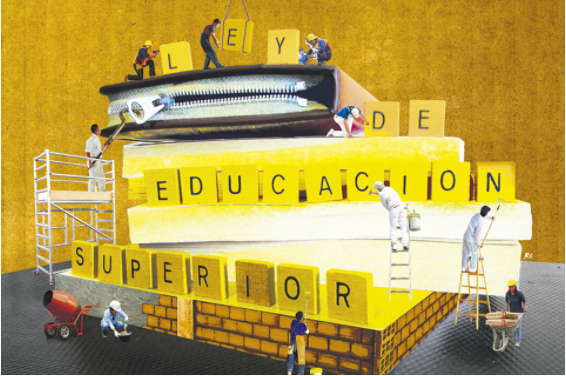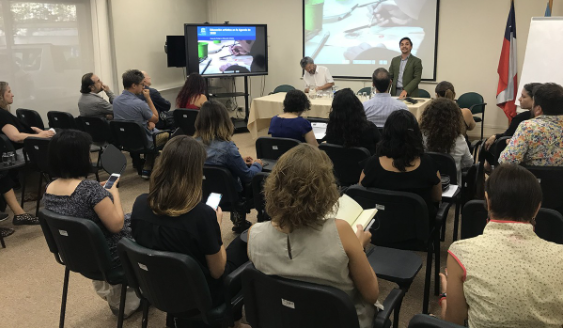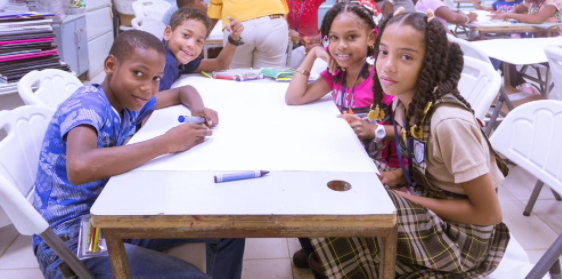News
News April 2021
CURRENTLY @ LATINNO
Since the second wave of Covid-19 infections arrived in the region, several Latin American countries have been facing once again the difficult decision to impose lockdown measures. While vaccination continues to advance rather slowly in most countries, governments and civil society debate over how to balance the measures to contain the pandemic, on the one side, and measures to reduce the pervasive inequality in access to public services that has only worsened over the past year.
Education is one of the areas where this balance is most challenging, as parents and children are unequally equipped to face school closures among increasing rates of precarious employment and the pervasive digital gap. In this month’s newsletter, we take a look at innovations where citizens engage in and for education during the pandemic in order to developing new frameworks and guidelines to improve the education in the future in addition to tackling the challenges posed by the digital gap and persistent social inequality.
FEATURED CASES:
Town Halls for Educational Sovereignity - Argentina
The Town Halls for Educational Sovereignty are deliberative spaces created by citizens, in which diverse social actors meet across the country, with the goal of debating and developing lines of action that will serve as an input for new legislation on higher education. Authorities from different levels of government also participated in the debate, in a personal capacity and voluntarily. In addition to the local assemblies, a federal digital assembly also took place.
Roundtable of Experts in Artistic Education - Chile
The Roundtable of Chilean Experts in Artistic Education is an initiative of the Ministry of Culture, Arts and Heritage and the United Nations Educational, Scientific and Cultural Organization. Representatives of the organizing institutions and experts in arts education from various universities participate in it. The purpose of the roundtable is to analyze the current institutional frameworks for educational and cultural policy and to develop policies to promote arts education.
Different proposals were discussed at the roundtable, including the preparation of documents and publications on education and training in culture and arts to disseminate good practices in formal and non-formal contexts, and the development of initiatives to raise awareness of the relevance of artistic and cultural education.
Forum for Afro-Descendant History at School - Panamá
The Forum on the inclusion of afro-descendant history in the school curricula is virtual dialogue that took place in May 2020 and was organized by the Ethnic Directorate of the City Hall of Panama, the Ministry of Education and the National Coordinator of Black Organizations (Conegpa) representing 23 civil society organizations. Its purpose was to discuss the inclusion of topics such as slavery, African history, maroonage and the contribution of the Afro-descendant population in the development of Panama in the school curriculum. This inclusion aims to make the identity of Afro-descendant groups and the reality of structural racism in the country visible.
In addition to the groups previously mentioned, the forum was attended by the Director of UNESCO for Central America, as well as Panamanian historians and academics. At the Forum, the representative of the Ministry of Education announced that she would create a Deliberative Table on the occasion of the International Decade for People of African Descent to follow up on the inclusion of these topics in the academic curriculum.
INNOVATIONS AGAINST COVID-19
Community Organization - El Salvador
El Salvador’s Community Organization is a civil society initiative that seeks to generate community support networks in response to the crisis resulting from Covid-19. Through a web platform, the initiators offer the possibility to bring together volunteers with those seeking help and support, thus generating a system for planning help and donations.
Organizations and support centers can make requests for donations to be managed and uploaded to the platform. In this way, citizens can identify available donation requests to support them. In addition, a collaborative mapping was organized through this platform to locate vulnerable communities and support centers throughout El Salvador. Finally, a map was created with the information collected.



